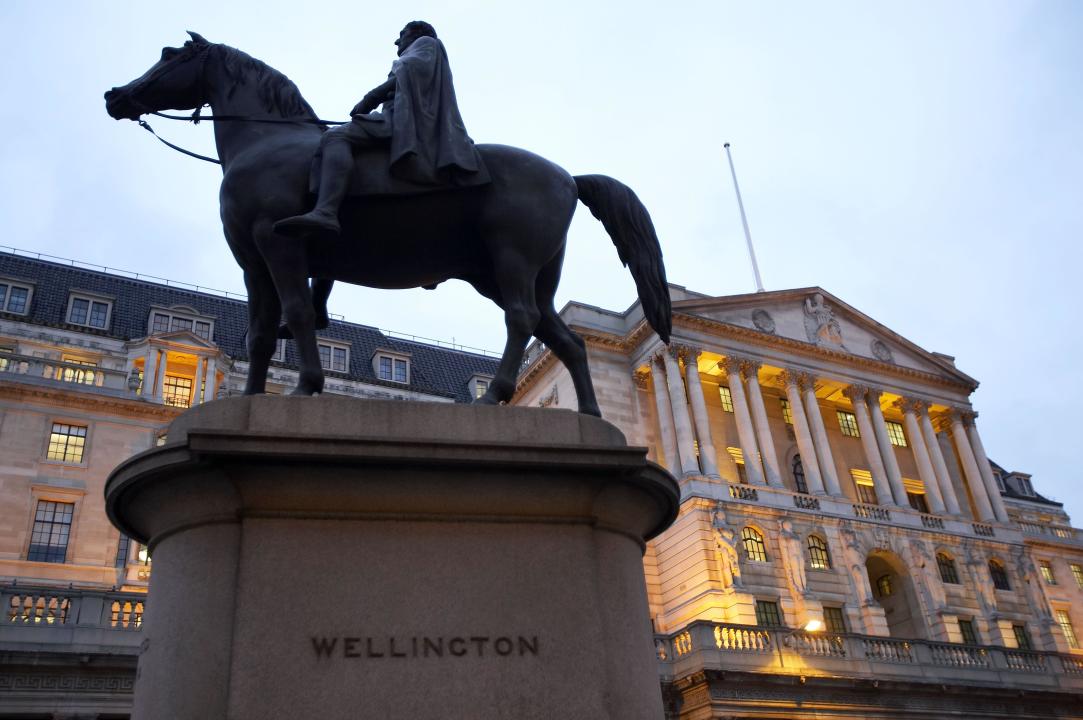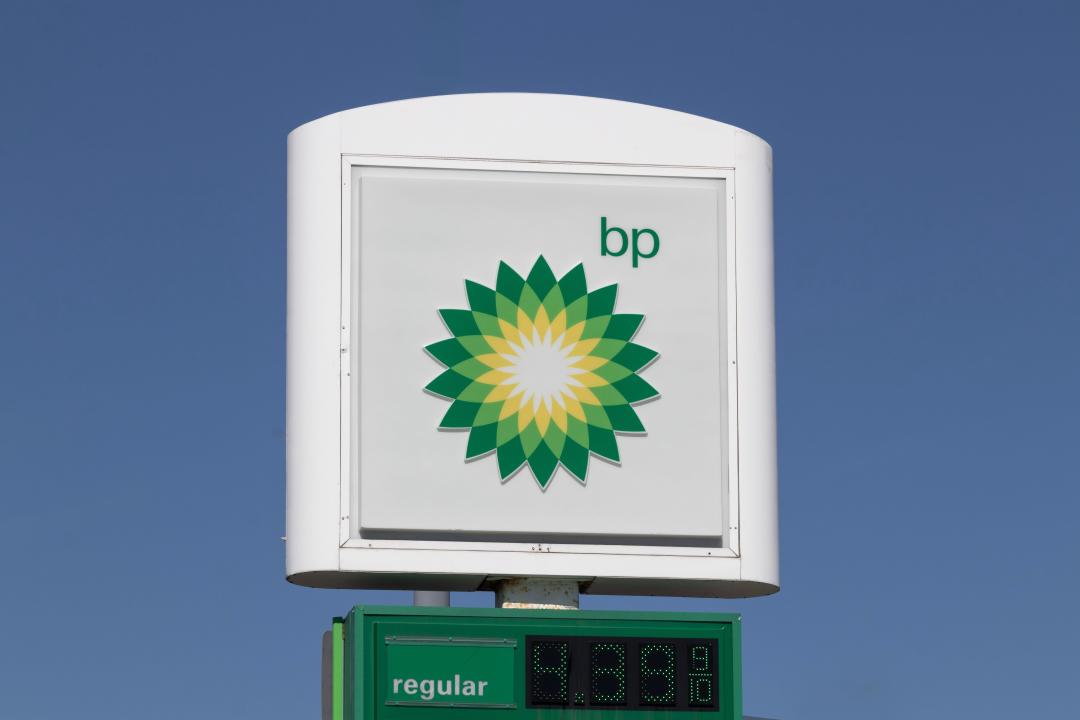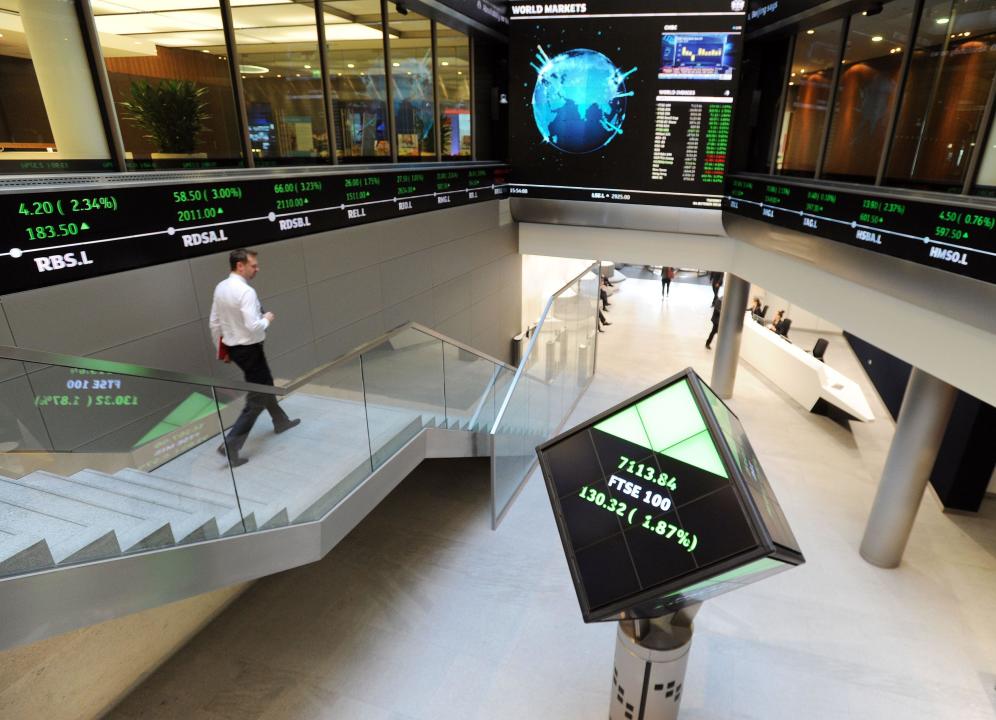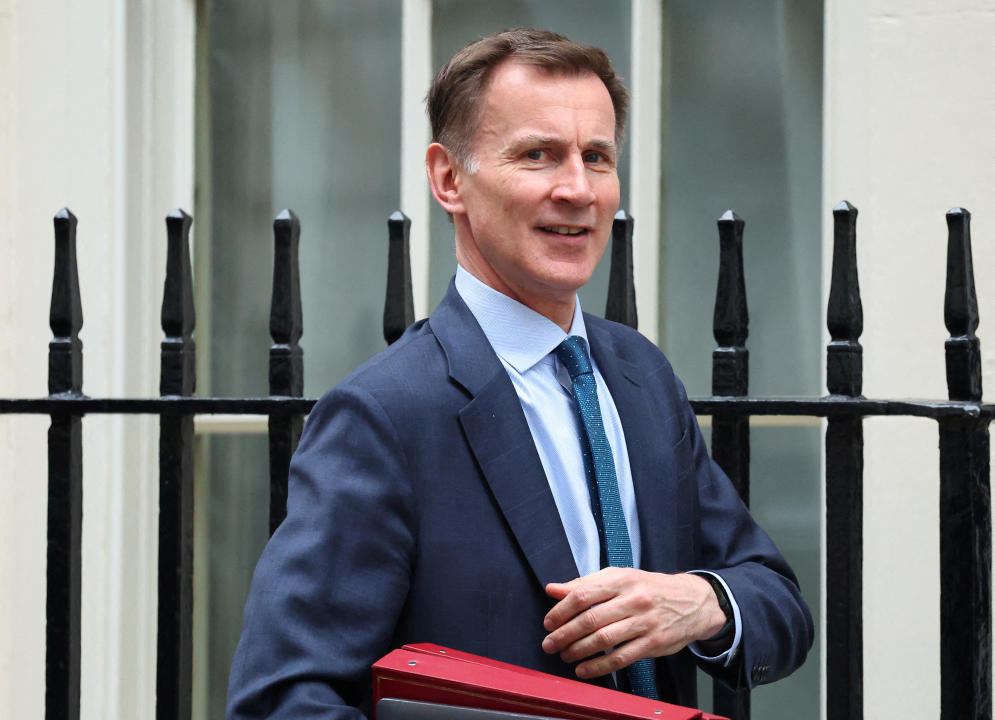
The FTSE 100 (^FTSE) and European stocks received a positive boost on Friday amid news that the UK economy grew in February, for the second month in a row.
According to the Office for National Statistics (ONS) said, gross domestic product (GDP) rose 0.1% during the month, boosting hopes that the economy is escaping recession.
The UK entered a technical recession at the end of 2023 after data showed two quarters of economic contraction.
-
London’s benchmark index was 1% higher in noon trade, rallying beyond the 8,000 point mark
-
Germany’s DAX (^GDAXI) climbed 0.7% and the CAC (^FCHI) in Paris also headed almost 0.8% into the green
-
The pan-European STOXX 600 (^STOXX) was up 0.9%
-
Wall Street is set to open higher as S&P 500 futures (ES=F), Dow futures (YM=F) and Nasdaq futures (NQ=F) were all in the green
“The second monthly GDP increase in a row for the UK has triggered a ticker tape parade from investors as they become more hopeful the country will come out of recession,” Russ Mould, investment director at AJ Bell, said.
“Both the FTSE 100 and the more domestic-focused FTSE 250 index jumped at the market open, indicating investors are happy that the economy is moving forward, albeit at a snail’s pace. Some growth is better than no growth at all.”
He added: “Housebuilders and supermarkets were in demand as investors took the view that a stronger economy will give a boost to consumer confidence and provide a better backdrop for spending.
“Miners also helped to give the FTSE 100 a lift as copper prices continued to climb thanks to the twin engines of supply fears and brighter demand prospects.
Follow along for live updates throughout the day:
Live15 updates
-
Best savings accounts that beat inflation rates
UK households are on the lookout for every little way to make their money go further amid the cost of living crisis, and savings accounts might help.
After years of low rates, high-yield savings accounts are having a moment as the Bank of England has kept interest rates at a 16-year high of 5.25%. While homeowners face higher mortgages, there is a silver lining in higher borrowing costs as consumers can now find UK savings accounts that offer more than inflation.
The UK rate of inflation came in at 3.4% in February, the lowest since September 2021, according to figures from the Office for National Statistics (ONS).
Savers should make sure they shop around to find the best deals and check what rate they are on — as they could still be sitting on a product that does not beat inflation.
-
Bank of England told to revamp forecasting


Equestrian statue of the Duke of Wellington by Chantrey, Bank of England, London. England, UK. (Album, Album) The Bank of England has been urged to fix its forecasts and technology by the former US Federal Reserve boss Ben Bernanke.
The Bernanke review found that Threadneedle Street has used out-of-date methods and failed to communicate clearly with the public.
This undermined the BoE’s record of forecasting inflation and the path of interest rates, according to the review.
“Some key software is out of date and lacks important functionality,” it said.
The Bank of England got its forecasts so wrong about the economy and threat of inflation partly because its IT systems were out of date, a report by Ben Bernanke has found. pic.twitter.com/DrsOoQrR02
— Ashley Armstrong (@AArmstrong_says) April 12, 2024
-
UK trade ticks up as global demand recovers
February’s figures showed an improvement in month-on-month UK goods and services trade, both in value terms and after inflationary effects are removed. The increases occurred for both imports and exports.
This comes in the week that the World Trade Organisation (WTO) forecast stronger global merchandise trade volumes in 2024 and 2025 compared with 2023 – predicting a 2.6% rise in volumes this year, and 3.3% in 2025.
As inflationary pressures abate, global consumer demand for goods and services is likely to generate trade growth over the next two years. But geopolitical uncertainty remains the biggest unknown factor around the forecasts.
Goods Imports
During February, import volumes rose by 0.3% excluding inflation (but declined by 0.4% in cash value terms). There was a 3% rise in EU imports volumes which was offset by a 3.3% drop from the rest of the world. Imports of medicines and pharmaceutical products from the US declined. There were higher imports of ships from Italy and mechanical machinery from Germany. Food imports from the Netherlands fell, particularly in meat, following new border requirements being introduced for EU imports on 31 January.
Goods Exports
Overall volumes rose by 1.7% during February – with a 3.4% rise to the rest of the world but a more static picture for the EU. In value terms, UK exports to the rest of the world increased by 4%, while overall UK goods exports increased by 0.9%. Aircraft exports to France, and mechanical machinery exports to Germany were noticeable areas of improvement.
Services
On UK services trade, after removing inflationary effects, imports rose by 0.5% in February with exports rising by 0.4%. A similar picture emerged for the actual values over the same period.
-
Gold hits fresh high amid Middle East tensions
Gold prices (GC=F) surged to fresh highs on Friday, with the safe-haven asset breaching the $2,400 threshold for the first time. This was due to a potential escalation in the tensions between Israel and Iran.
Meanwhile silver traded at the highest since February 2021. Gold has surged higher this year, dragging silver along with it as central banks including China’s stepped up purchases of the precious metal.
It comes as Israel is preparing for an assault from Iran in the next two days. This is in retaliation for its strike on the country’s diplomatic compound in Syria last week, the Wall Street Journal reported, citing a person familiar with the matter.
Ricardo Evangelista, senior analyst at ActivTrades, said:
“As rhetoric between the two adversarial powers grows increasingly belligerent, the allure of haven assets intensifies, with investors bracing for a conflict fraught with significant geopolitical and economic ramifications.”
“The ascent of gold prices is especially noteworthy against the backdrop of a strengthening dollar and the uptick in treasury yields, spurred by US consumer and producer prices surpassing expectations and consequently delaying the anticipated timing of the Federal Reserve’s inaugural rate cut from June to November.”
He added: “Given these prevailing conditions, the trajectory for gold prices appears poised for further upside.”
Platinum and palladium also advanced as the Bloomberg Dollar Spot Index traded near the highest level since November.
-
Pound at five-month low against US dollar
And staying with currency news…
The pound (GBPUSD=X) has lost more than half a cent against the dollar today, currently trading at $1.2483, a fall of 0.6% on the day.
This is the lowest since late November last year. Sterling is now on track for a weekly loss of 1.1%.
It comes as the US greenback continues to strengthen thanks to expectations that the Federal Reserve will cut interest rates slower than expected.
Neil Wilson, chief market analyst at Markets.com, said:
The UK economy grew tepidly in February, with GDP expanding by 0.1%. Sterling remains under the cosh.
The euro sank to its weakest since mid-November on anticipation of policy divergence.
-
Euro falls to five-month low
The euro fell to its lowest level this year as the European Central Bank (ECB) looks set to cut interest rates before the US Federal Reserve.
The currency dropped as much as 0.5% to $1.0676 on Friday, its weakest level since November. It is now on track for its biggest weekly decline against the dollar in nearly a year, down 1.5%.
It comes as traders are betting that ECB policymakers will deliver a quarter-point cut in June as eurozone inflation, at 2.4%, nears its 2% target.
Meanwhile, money markets pushed back the expected start date for the Federal Reserve’s easing by one meeting to September.
-
BP rises after takeover interest from UAE oil firm


Chicago – April 6, 2024: BP Retail Gas Station. BP and British Petroleum is a global British oil and gas company headquartered in London. (Jonathan Weiss) BP (BP.L) was one of the top risers on Friday morning, up as much as 2.8% to their highest level since October, after Reuters reported that Abu Dhabi National Oil Company (Adnoc) had considered launching a takeover bid for the UK firm.
The United Arab Emirates’ state-owned oil company ha spoken directly to BP in recent months, and sought advice from investment banks on a potential deal, sources told the news organisation.
However, deliberations did not get any further than preliminary discussions after Adnoc said BP was not the right fit for its strategy. The company was also concerned about the politics of any bid.
The Emirati giant considered all options when looking at BP, including buying a big stake, a person familiar with the matter said.
Adnoc currently supports BP’s hydrogen production project in Teesside, while last year the firms joined forces on a $2bn venture to buy 50% of Israeli gas company NewMed. But this deal was suspended in March due to the conflict in Gaza.
It comes as British companies have attracted a number of foreign takeovers due to depressed values on London’s stock market.
-
Which UK cities are struggling with energy bills?
Are you battling to pay your energy bills amidst the rising cost of living? If so, several million other UK residents are in the same boat.
But are you in one of the areas most struggling to pay their energy bills?
MakeMyHouseGreen.com has ranked the cities most affected by this issue:
Rank
City
Population
Monthly Average Google Search Volume
Adjusted For Population
1
Lancaster
144,246
110
0.00076
2
Ripon
16,000
10
0.00063
3
Bangor (Wales)
16,358
10
0.00061
4
Ely
19,189
10
0.00052
5
Truro
20,920
10
0.00048
6
Chichester
23,731
10
0.00042
7
Douglas
26,677
10
0.00037
8
Canterbury
43,432
10
0.00023
9
Salisbury
45,000
10
0.00022
10
Inverness
46,958
10
0.00021
The company said:
“The new Ofgem price cap should make energy bills (in England, Wales, and Scotland) the lowest for two years. The prices in Northern Ireland are also decreasing. However, you’ll still need to be wise with your finances to reap the full benefits.”
Here’s how:
-
Don’t leave your appliances and devices on standby
-
Use lower temperatures on your washing machine
-
Use LED (energy-saving) lightbulbs
-
Use draught excluders to preserve heat
-
Consider installing solar panels
-
Have quicker showers
-
Turn down your thermostat by a couple of degrees
-
-
FTSE 100 surges through 8,000 point mark


File photo dated 04/10/16 of an electronic ticker tape showing the FTSE 100 inside the London Stock Exchange. The FTSE 100 is celebrating its 40th anniversary, as firms from Barclays to Sainsbury’s remain a fixture of the UK’s top stock market index. Dubbed the Footsie, the index containing the biggest 100 companies on the London Stock Exchange (LSE) launched on January 3 1984. Issue date: Wednesday January 3, 2024. (Nicholas .T. Ansell, PA Images) The FTSE 100 has rallied through the 8,000 point mark this morning, currently up 1.2% at the time of writing.
Traders are cheering news that the economy is moving forward, albeit at a slow pace.
Russ Mould, investment director at AJ Bell, said:
“Housebuilders and supermarkets were in demand as investors took the view that a stronger economy will give a boost to consumer confidence and provide a better backdrop for spending.
“Miners also helped to give the FTSE 100 a lift as copper prices continued to climb thanks to the twin engines of supply fears and brighter demand prospects.
-
IoD: Few signs of a strong economic rebound
It seems not everyone is as positive as the chancellor about the latest GDP figures. The Institute of Directors (IoD) has cautioned that “the assertion the UK economy has decisively turned the corner…is still yet to find confirmation in the data.”
Roger Barker, director of policy at the Institute of Directors, said:
“After a strong start to the year, the consumer-facing parts of the economy – particularly accommodation and food services – took a backward step. Construction was also surprisingly weak, although there were encouraging signs of revival in production and manufacturing output.
“It appears that the UK’s ascent out of the mild technical recession of last year is a relatively shallow one. Although the latest figures suggest that the UK is likely to generate positive economic growth in the first quarter, there are few signs of a strong economic rebound.”
-
Half of Brits cut back on non-essential spend
A survey from KPMG has revealed that half of consumers have cut back on their non-essential spending so far this year.
It found that eating out was the most likely thing to be cut from people’s budgets, listed by 72% of those who are scaling back. This was followed by clothing purchases, coming in at 62%, and takeaways at 58%.
Just 3% of consumers said they have been able to spend more on non-essentials in the first quarter, whilst 52% cut back.
-
Economy turning a corner, says Hunt


FILE PHOTO: British Finance Minister Jeremy Hunt leaves Downing Street, in London, Britain, March 19, 2024. REUTERS/Toby Melville/File Photo (Reuters / Reuters) Chancellor Jeremy Hunt has welcomed the latest GDP news.
He said:
“These figures are a welcome sign that the economy is turning a corner, and we can build on this progress if we stick to our plan.
“Last week our cuts to national insurance for 29 million working people came into effect across Britain, as part of our plan to reward work and grow the economy.”
-
UK economy grows in February
The UK economy has grown slightly for the second month in a row, boosting hopes that the economy is escaping recession.
Gross domestic product (GDP) grew 0.1% in February, the Office for National Statistics (ONS) said.
It comes after the UK entered a technical recession at the end of 2023 after data showed two quarters of economic contraction.
Production, which includes manufacturing, recorded the fastest increase, growing 1.1% in February. The services sector grew 0.1%. Meanwhile, construction was the real laggard in the UK economy in February, with output contracting by 1.9%.
The statistical body also lifted its forecast for January, to show 0.3% growth, up from 0.2% previously estimated.
Watch: What is a recession and how do we spot one?
-
Asia and US stocks
Shares in Asia mostly fell overnight as traders shrugged off a positive lead from Wall Street.
The Nikkei (^N225) rose 0.2% on the day in Japan, while the Hang Seng (^HSI) fell 1.9% in Hong Kong. The Shanghai Composite (000001.SS) was 0.5% down by the end of the session.
Across the pond on Wall Street, the S&P 500 (^GSPC) rose 0.7% to 5,199.06, and the tech-heavy Nasdaq Composite (^IXIC) surged 1.7% to a record 16,442.20. The Dow Jones Industrial Average (^DJI) was the laggard, however, slipping a marginal 0.1% to 38,459.08.
Meanwhile, the yield on the 10-year Treasury bonds rose to 4.57% from 4.55% late on Wednesday.
-
Coming up…
Good morning all, welcome back to our final markets live blog of the week.
Here’s a quick summary of what’s on the agenda for today:
-
7am: UK GDP report for February
-
12pm: Bank of England to publish review of its forecasting models
-
1pm: India’s inflation rate for March
-
1:30pm: US Import and Export Price Indice
-
3pm: University of Michigan’s index of US consumer confidence
-
Watch: What is a recession and how do we spot one?
Download the Yahoo Finance app, available for Apple and Android.













